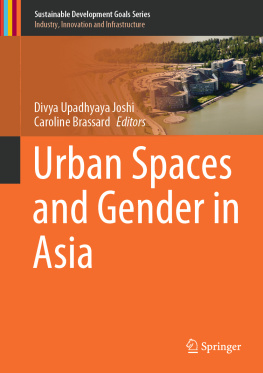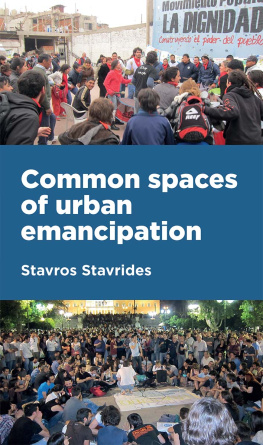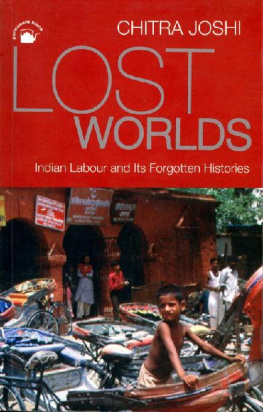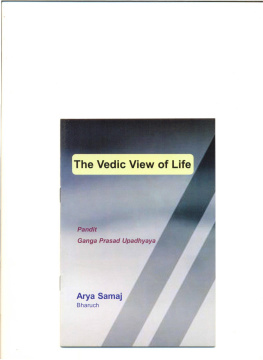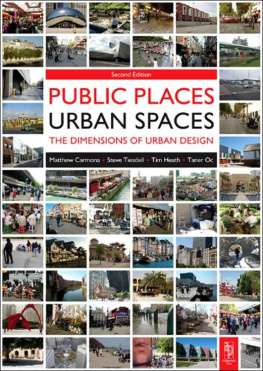Divya Upadhyaya Joshi - Urban Spaces and Gender in Asia
Here you can read online Divya Upadhyaya Joshi - Urban Spaces and Gender in Asia full text of the book (entire story) in english for free. Download pdf and epub, get meaning, cover and reviews about this ebook. year: 2020, publisher: Springer International Publishing, genre: Politics. Description of the work, (preface) as well as reviews are available. Best literature library LitArk.com created for fans of good reading and offers a wide selection of genres:
Romance novel
Science fiction
Adventure
Detective
Science
History
Home and family
Prose
Art
Politics
Computer
Non-fiction
Religion
Business
Children
Humor
Choose a favorite category and find really read worthwhile books. Enjoy immersion in the world of imagination, feel the emotions of the characters or learn something new for yourself, make an fascinating discovery.
- Book:Urban Spaces and Gender in Asia
- Author:
- Publisher:Springer International Publishing
- Genre:
- Year:2020
- Rating:5 / 5
- Favourites:Add to favourites
- Your mark:
- 100
- 1
- 2
- 3
- 4
- 5
Urban Spaces and Gender in Asia: summary, description and annotation
We offer to read an annotation, description, summary or preface (depends on what the author of the book "Urban Spaces and Gender in Asia" wrote himself). If you haven't found the necessary information about the book — write in the comments, we will try to find it.
Urban Spaces and Gender in Asia — read online for free the complete book (whole text) full work
Below is the text of the book, divided by pages. System saving the place of the last page read, allows you to conveniently read the book "Urban Spaces and Gender in Asia" online for free, without having to search again every time where you left off. Put a bookmark, and you can go to the page where you finished reading at any time.
Font size:
Interval:
Bookmark:
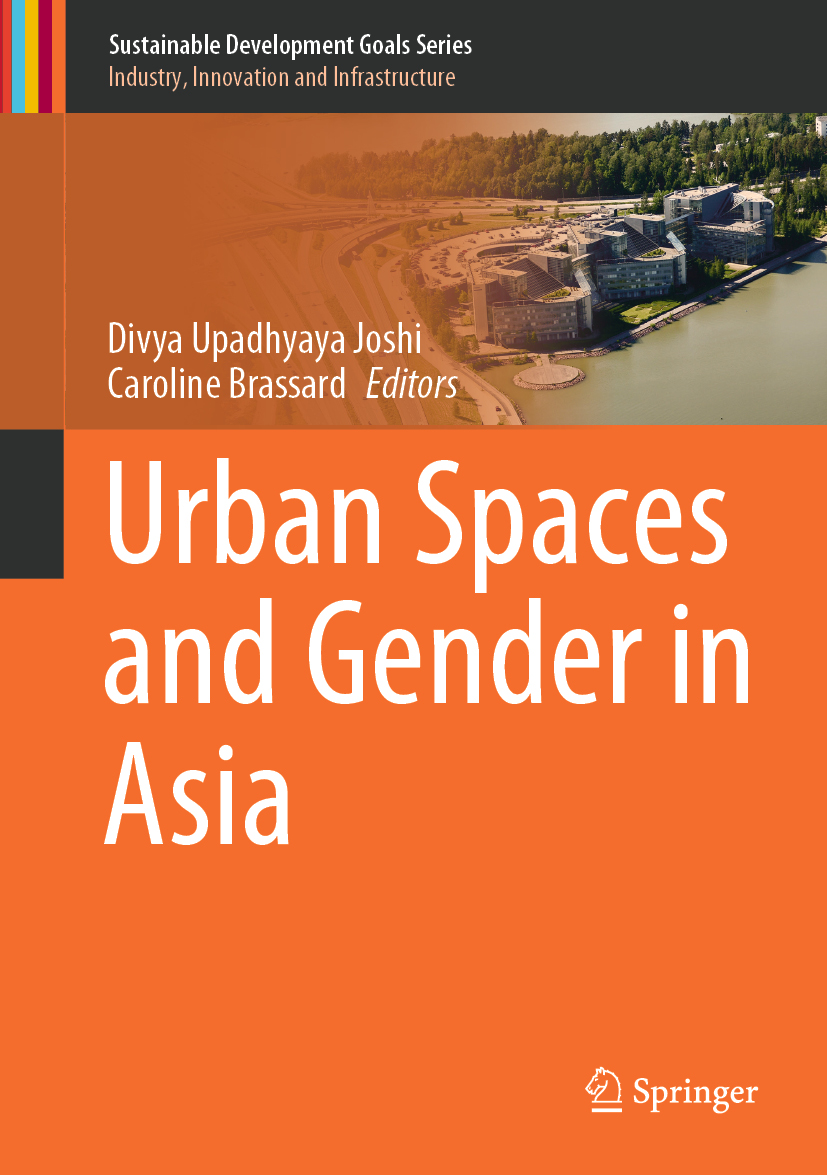
World leaders adopted Sustainable Development Goals (SDGs) as part of the 2030 Agenda for Sustainable Development. Providing in-depth knowledge, this series fosters comprehensive research on these global targets to end poverty, fight inequality and injustice, and tackle climate change.
The sustainability of our planet is currently a major concern for the global community and has been a central theme for a number of major global initiatives in recent years. Perceiving a dire need for concrete benchmarks toward sustainable development, the United Nations and world leaders formulated the targets that make up the seventeen goals. The SDGs call for action by all countries to promote prosperity while protecting Earth and its life support systems. This series on the Sustainable Development Goals aims to provide a comprehensive platform for scientific, teaching and research communities working on various global issues in the field of geography, earth sciences, environmental science, social sciences, engineering, policy, planning, and human geosciences in order to contribute knowledge towards achieving the current 17 Sustainable Development Goals.
This Series is organized into eighteen subseries: one based around each of the seventeen Sustainable Development Goals, and an eighteenth subseries, Connecting the Goals, which serves as a home for volumes addressing multiple goals or studying the SDGs as a whole. Each subseries is guided by an expert Subseries Advisor.
Contributions are welcome from scientists, policy makers and researchers working in fields related to any of the SDGs. If you are interested in contributing to the series, please contact the Publisher: Zachary Romano [Zachary.Romano@springer.com].
More information about this series at http://www.springer.com/series/15486

This Springer imprint is published by the registered company Springer Nature Switzerland AG
The registered company address is: Gewerbestrasse 11, 6330 Cham, Switzerland
There are many people who have made this book possible and whose help we would like to acknowledge. We are grateful to all the people who were involved in the International Conference that led to this book. The Conference, held in November 2017 in New Delhi, was made possible due to the funding from the Indian Council of Social Science Research (ICSSR), New Delhi and Uttarakhand State Council for Science and Technology (UCOST), Dehradun, India. At Kumaun University, Nainital, India, we thank its Vice Chancellor, Prof. Dinesh Kumar Nauriyal, whose enthusiasm for the project and mentoring remained crucial for its completion.
We express our gratitude to all our colleagues, who have generously given their time and incisive comments on the drafts. We thank Linda Lane, Namrata Chindarkar, Tess Del Rosario, Yvonne Chen, Ame Berges, Robin Bush, and Naomi Aoki and Pushpesh Pant for reviewing the chapters included in this book.
Our sincere thanks go to all the editorial team members at Springer and especially to Prof. R. B. Singh, the Co-Editor of the Sustainable Development Goals Series, for their trust, support and encouragement throughout this journey.
Finally, we thank our friends and families for emotional sustenance in this venture, especially our children Ananya, Gabriel, Oliver and Tristan for being so considerate and caring, often sacrificing their time with us so that we can pursue our academic work.
Asian Cities Climate Change Resilience Network
ADBAsian Development Bank
AECASEAN Economic Community
APSAdult Population Survey
ASEANAssociation of Southeast Asian Nations
ASHAAccredited Social Health Activist
CCDClimate Compatible Development
CDCross Dressers
CDCCommunity Development Council (Singapore)
CDKNClimate Development Knowledge Network
CEDAWConvention on the Elimination of All Forms of Discrimination against Women
CESLAMCentre for the Study of Labour and Mobility (Nepal)
CO2Carbon dioxide
CPFCentral Provident Fund (Singapore)
CSOCivil Society Organization
DCWDelhi Commission for Women
DDADelhi Development Authority
DDMADistrict Disaster Management Authority
DDMPDistrict Disaster Management Plan
Delhi NCRDelhi-National Capital Region
DOFEDepartment of Foreign Employment (Nepal)
DRDADistrict Rural Development Agency
EECCAEastern Europe, Caucasus and Central Asia
EFCsGEMs Entrepreneurial Framework Conditions
FEAForeign Employment Act (Nepal)
FEIFemale Entrepreneurship Index
FEPBForeign Employment Promotion Board (Nepal)
FERForeign Employment Regulation (Nepal)
FGDsFocus Group Discussions
FSCFamily Service Centre (Singapore)
FYFiscal Year
GAATWGlobal Alliance Against Traffic in Women
GCCGulf Cooperation Council
GDPGross Domestic Product
GEAGGorakhpur Environmental Action Group
GEDIGlobal Entrepreneurship and Development Institute
GEMGlobal Entrepreneurship Monitoring
GNPGross National Product
GTGender Turn
HDBHousing Development Board (Singapore)
HRWHuman Rights Watch
IDSInstitute of Development Studies
ILOInternational Labour Organization
IPCCIntergovernmental Panel on Climate Change
ITInformation Technology
KNOMADGlobal Knowledge Partnership on Migration and Development
Font size:
Interval:
Bookmark:
Similar books «Urban Spaces and Gender in Asia»
Look at similar books to Urban Spaces and Gender in Asia. We have selected literature similar in name and meaning in the hope of providing readers with more options to find new, interesting, not yet read works.
Discussion, reviews of the book Urban Spaces and Gender in Asia and just readers' own opinions. Leave your comments, write what you think about the work, its meaning or the main characters. Specify what exactly you liked and what you didn't like, and why you think so.

